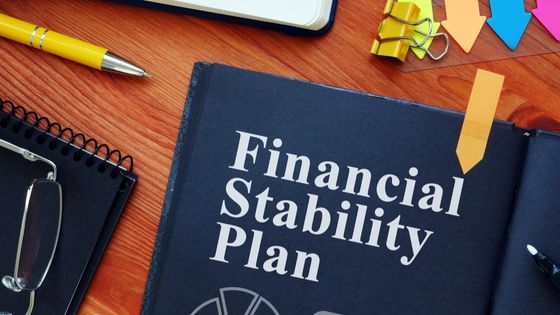Financial stability is something that many people strive for. After all, a stable financial situation can lead to peace of mind, security, and the opportunity to achieve your goals. If you’re looking for financial stability but need help knowing where to start, below are five tips you should consider to gain greater control of your finances and achieve the stability you desire.


1. Have an Emergency Fund
When it comes to financial stability, one of the most important things you can do is to have an emergency fund. This will help you cover unexpected expenses in case something happens, like a car repair or a medical bill. You should have enough funds in your emergency account to cover a few months of living costs. Even a small amount can help if you’re starting.
Try setting aside $50 from each paycheck into a savings account. Once you have saved money, you can start looking for ways to grow your emergency fund. If you already have debt, another vital step is to start working on paying it off. Payday loan debt relief is an option that can help you manage your payday loan debt and get back on track.
2. Invest in Yourself
Investing in yourself means taking the time to learn about personal finance and investing and ensuring you do everything possible to grow your income. Many resources are out there to assist you in understanding private finance. You can find books, articles, online courses, and more. The key is to find what works for you and commit to learning.
3. Invest in a Retirement Account
You can invest in a few different retirement accounts, each with benefits. Individual Retirement Accounts (IRAs) come in traditional and Roth varieties and provide various tax advantages depending on your choice. Whatever type of retirement account you invest in, the most important thing is to start contributing as early as possible. The sooner you start saving, the more time your money has to grow. Even if you can only afford to contribute a small amount each month, it will add up over time.
Talk to a financial advisor or investment professional if you need help figuring out where to start. They can help you figure out how much you need to save based on your goals and how much risk you’re comfortable taking on. They can also help you choose the right mix of investments for your portfolio.
4. Live Below Your Means
To be financially stable, you must learn to live below your standards. That means spending less than you make and keeping the remainder for future use. It is not easy to do this if you’re used to spending everything you make, but it’s necessary to recall that living below your means something other than depriving yourself. It just means being more mindful about your spending and ensuring that your needs are met before your wants.
5. Make a Budget
When it comes to financial stability, one of the most important things you can do is to create a budget. This will help you track your spending, see where your money is going, and ensure you are not overspending. There are a few different ways to approach budgeting. You can use a pen and paper, or various budgeting apps and software programs are available. Whichever method you choose, ensure that you include all your income and expenses in your budget.
Once you have created a budget, stick to it as best as possible. Review it regularly to see any areas where you can cut back on spending. If you find some extra money at the end of the month, don’t be tempted to spend it all and put some of it away into savings.
Conclusion
Financial stability is essential for many, and you can achieve it with proper guidance. By following the five tips outlined in this article, you can make a plan to reach financial security. From paying off debts to saving more money each month and investing wisely, these steps will help you get closer to achieving financial freedom. With dedication and hard work, you’ll soon have the peace of mind from knowing you’re on track towards building a secure nest egg for yourself and your family’s future.









